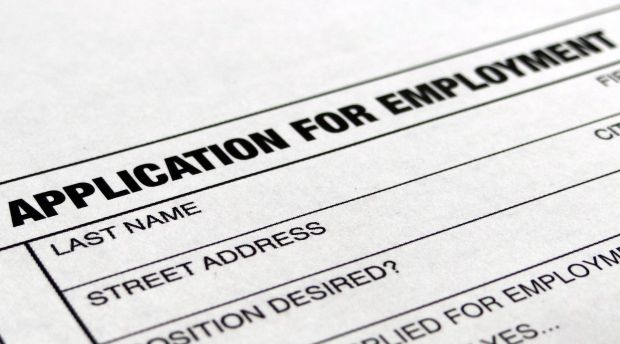How to Respond to a Hard Interview Question
Post Views 7Summary: This Q & A goes over a specific interview question that an employer might ask you in an interview and how to best answer it.
How do you respond to the interview question, “If you are given an assignment that needs to go out the same day, and then two more supervisors give you an assignment that has to go out the same day, how do you handle these requests?
Most interview questions are factual in nature. The interviewer wants to know more about your background and experiences. However, on occasion, interviewers like to throw in questions that are designed to make you think and respond on-the-fly.
These are the kind of questions that most job seekers dread in an interview. Why do people wake up in a cold sweat worrying about questions like these? It’s simple: They don’t think that they can prepare for these “trick questions.”
Well, I have good news that will help you sleep better before that next interview. You can prepare for these kinds of questions and I’m going to show you how to do it.
First, let me outline the overall approach we’ll use to answer these kinds of “tricky questions”. Then, I’ll follow that up by applying our approach to the example question that Diedre sent in.
Here’s the high-level approach:
- Try to quickly assess why the interviewer is asking this question.
- Make some assumptions so that you can “solve the problem.” Make sure you state your assumptions.
- Engage the interviewer while solving the problem.
- Explore alternative solutions, if applicable.
- Clearly describe your solution(s) and make sure they address the underlying purpose of the question (from step #1).
Now, let’s look at using our approach to answer the example interview question (which I’ll remind you was: “If you are given an assignment that needs to go out the same day, and then two more supervisors give you an assignment that has to go out the same day, how do you handle these requests?”). Let’s begin by figuring out why the interviewer is asking this question. What’s the interviewer looking for? Well the question talks about getting assignments with tight deadlines, so it’s safe to assume that time management is something they want me to address. And then there’s the matter of having more than one assignment with the same deadline, so I’m going to guess they’re trying to assess my ability to multi-task. Finally, the assignments are coming from three different sources, so my answer should probably address prioritization (and communication as well).
Okay, so either mentally note these items or jot them down on your interview pad (you did bring one of those, right?):
- Time Management
- Multi-tasking
- Resolving priorities
- Communication
Ok, so now we need to make some assumptions so that we can answer the question. Most of the time with these kinds of questions, the problem addressed by the question is not generally solvable, or the question itself is abstract and requires some assumptions to become concrete.
For our example question, let’s start by giving our supervisors names: Mary, Joe and Frank. We’ll say that Mary gave us the first assignment. Now, let’s look at what’s preventing us from answering the problem. Well, we don’t know anything about how the requests from Joe and Frank came to us.
So, let’s state assumption #1: That Joe and Frank didn’t give you the assignments simultaneously. We’ll assume this because in the real world it will never really happen that these 2 assignments would come in all together and pre-prioritized.
Ok, what else don’t we know? Well, we don’t know anything about the priorities of these assignments.
So, assumption #2: The assignments are not all equal in priority.
Anything else? Well, since there are 3 supervisor parties involved, we don’t have information about how priority conflicts would be solved.
Assumption #3: Mary is our direct supervisor and is capable of resolving conflicts in priority amongst the assignments.
At this point, one of two things will occur in the interview. The interviewer will either allow you to proceed with your given assumptions (most likely) or they will stop you and help you clarify the problem (by giving you some additional/different assumptions).
Either way, you are closer to your answer. I should mention that stating your assumptions in step #2 should be done “out loud.” You should be talking to the interviewer and describing as you are thinking. Don’t put your head down and “be silent” for 2 minutes while you figure things out. The interviewer is expecting you to work through the question and by engaging the interviewer you are helping them learn about your problem solving skills.
Also, don’t be afraid to use a whiteboard if one is available. Most people are “visual learners” and will take your drawings/discussion as a very positive sign.
We have made some assumptions that will let us give an answer, but there are still lots of possibilities/variations. For example, we accepted Mary’s initial assignment and deadline, so that must be realistic and achievable. When Joe comes with assignment #2, could it also be achieved realistically in conjunction with the first task? What about the situation when Frank comes along with assignment #3 (layered in with #1 and #2)?
Here you can choose to make further assumptions (limiting the possibilities) or you can choose to answer in terms of possible alternatives. Either way can work.
Ok, so we’ve made our assumptions and engaged our audience and impressed them with our problem definition/solving skills. Now, we need to wrap it up in a pretty bow.
Take a moment to glance at the items we jotted down (or mentally noted) in step #1. Let’s make sure we address those with our answer.
Here’s how I might take a crack at answering the question: “When Joe came with his assignment, I would quickly determine whether I could finish Mary’s and Joe’s assignment by the end of the day. If yes, I would accept both assignments. If no, I would politely suggest to Joe that I had a prior commitment to a task due end of day and that I couldn’t realistically finish both. I would suggest that I would be happy to complete the task as quickly as possible thereafter. If Joe didn’t find that acceptable, I would consult Mary and ask her to provide direction on priority and to help manage Joe’s expectations. When the third assignment came in from Frank, I would follow a similar procedure. If I could do all three tasks by end of day, I would accept the assignment and do all three. If not, I would ask for prioritization help from Mary and work with her towards resolution while keeping Joe and Frank informed and clear in terms of expectation on when the assignments would be complete.”
If you take this approach and use it consistently on these “trick questions”, you’ll be amazed at how much more confident and impressive you’ll appear at your interviews.
By the way, if you are interested in some really tricky interview questions purchase “How Would You Move Mount Fuji?” by William Poundstone. The book has a lot of trick and “impossible” questions.
How to Respond to a Hard Interview Question by Granted Contributor



 Talking Your Way Out of a Tight Salary Spot
Talking Your Way Out of a Tight Salary Spot  Do Psychological Tests Make a Difference in Getting a Job?
Do Psychological Tests Make a Difference in Getting a Job?  How Should I Follow-up after a Job Interview?
How Should I Follow-up after a Job Interview?  Should You Reference a Former Employer You Sued?
Should You Reference a Former Employer You Sued?  Do Career-Minded Grads Stand a Better Chance at Getting a Job?
Do Career-Minded Grads Stand a Better Chance at Getting a Job?  Job Seeker Wonders How to Have a Good Lunch Interview
Job Seeker Wonders How to Have a Good Lunch Interview  Answer These 3 Questions to Land Your First Job
Answer These 3 Questions to Land Your First Job  Can Your Employer Take on Your Student Debt?
Can Your Employer Take on Your Student Debt?